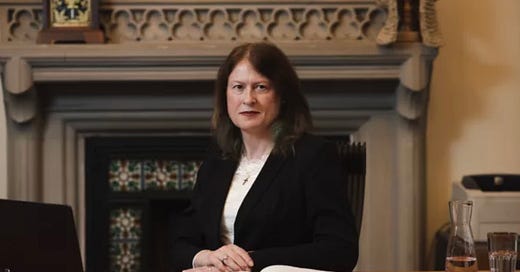The UK’s first transgender judge has delivered an unusual farewell judgment.
Dr Victoria McCloud stood down in April after 14 years as a High Court master — a first-instance judge.
In a resignation letter two months earlier, McCloud wrote:
I have reached the conclusion that in 2024 the national situation and present judicial framework i…
Keep reading with a 7-day free trial
Subscribe to A Lawyer Writes to keep reading this post and get 7 days of free access to the full post archives.




